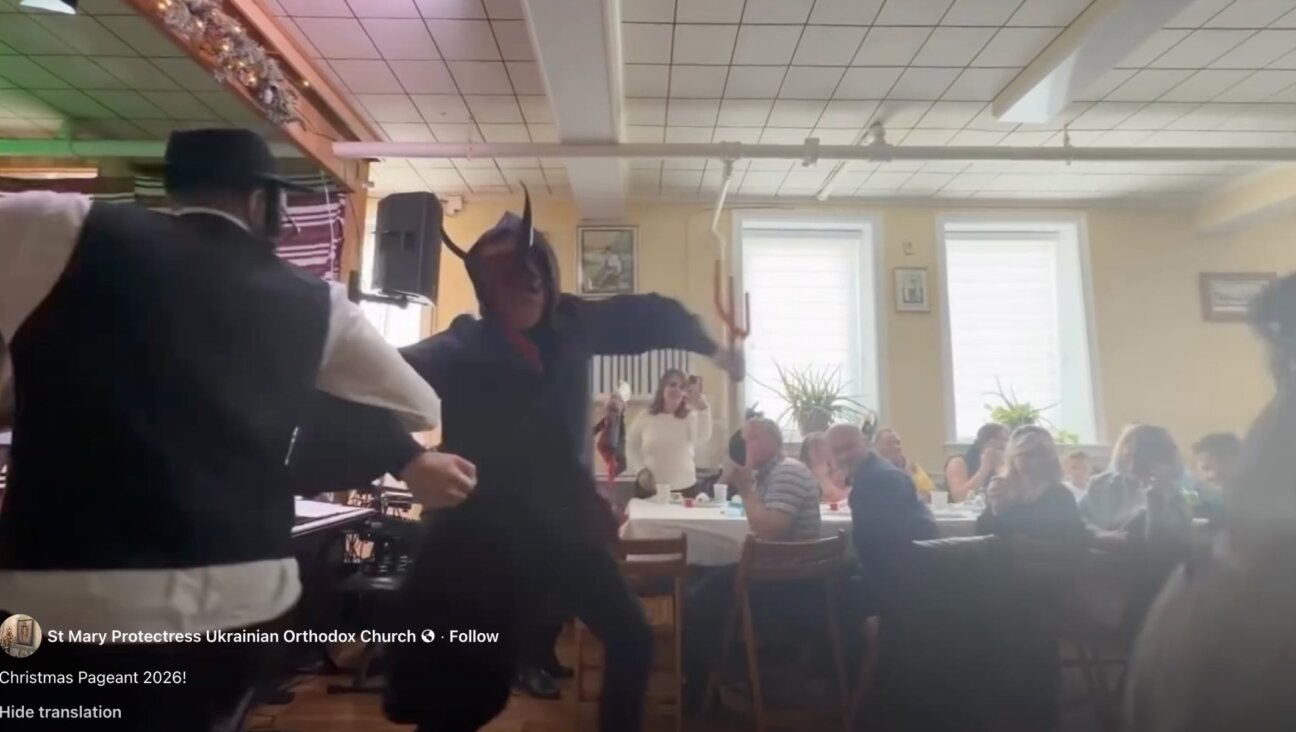Ultra-Orthodox Mob Swarms Western Wall To Protest Women’s Prayer Service

Prayer Protest: Haredi youth gathered early this morning at the kotel to prevent egalitarian services hosted by the group Women of the Wall. Image by getty Images
Haredi Orthodox youth mobbed the Western Wall plaza by the thousands to protest Women of the Wall as they held their monthly prayer service.
The youth, many of them students from haredi Orthodox yeshivot, had filled the Western Wall Plaza by 6:40 a.m. on Friday, 20 minutes before Women of the Wall, a women’s prayer group that holds monthly services at the Wall, began praying. Because haredi Orthodox women had packed the women’s section of the plaza earlier in the morning, Women of the Wall were forced to pray in the back section of the plaza, further away from the Wall itself.
A constant din of screaming came from the crowd as the service began, and shrieks erupted as a woman wearing a prayer shawl tried to push through the mob to reach the service. Police, sometimes holding hands, sometimes linking arms, held back the crowd as two officers, with difficulty, escorted the woman through.
The scene was a reversal from months past, when women wearing prayer shawls to the monthly service would be arrested for breaking a law that outlawed any deviation from “local custom” at the wall.
Last month, a Jerusalem District Court judge ruled that Women of the Wall did not violate the law and deserved police protection rather than arrests.
One day before the service, Rabbi Aharon Leib Shteynman, a haredi leader, called on thousands of students to protest Women of the Wall.
“It’s sad that they’re using the Kotel to advance their interests,” said an Orthodox graphic designer from Jerusalem, 29, who declined to give her name. “They want to change all of Israel. It’s an insult to this place.”
Women of the Wall’s service has rarely, if ever, seen this many people come to protest. Many of the haredim said that they were there to pray, as haredim do daily at the Wall.
“I came to pay and to protest gentiles who masquerade as Jews,” said Pini, 17, from Jerusalem. “I’ve taken hits here and I’ll take more hits. They’re making the Torah crooked. They want us to be like them.”
As the service went on, the crowd of haredi Orthodox men tried to push through the police barricade several times – and almost succeeded before the officers pushed them back, sometimes manhandling a student or two along the way. As attempt after attempt to breach the police line failed, the men turned to throwing cups of water and coffee at police, journalists and – when they could – the women praying. One protester threw a chair.
At times, the haredi Orthodox crowd would itself break out into song, singing about the failure of wicked plans and the dominion of God.
Throughout it all, Women of the Wall prayed a full service, trying to sing over the screams that would rise every time a song began. For the first time in at least months, men and women mixed at the service, with no divider to separate them.
“This is an embarrassment and a shame how some people are acting to people who just want to pray,” said Bracha, 66, who participated in Women of the Wall’s service. “There’s space for everybody. People need to relate with understanding to those who don’t do the same thing as them.”
For some supporters of Women of the Wall, Friday’s conflict was about more than the right to pray freely at Judaism’s holiest site.
“This is a struggle for democracy in Israel,” said Lucas Lejderman, 30, a counselor in the Conservative Jewish youth movement here. “It’s amazing that in a democratic society people who believe this suffer from a lack of Jewish pluralism.”
Whether protesters will turn out in equal numbers when Women of the Wall meet next month is unclear. But as the crowd dispersed, the women sang Hatikvah, Israel’s national anthem.
As if on cue, the handful of protesters who remained booed at the top of their lungs.













